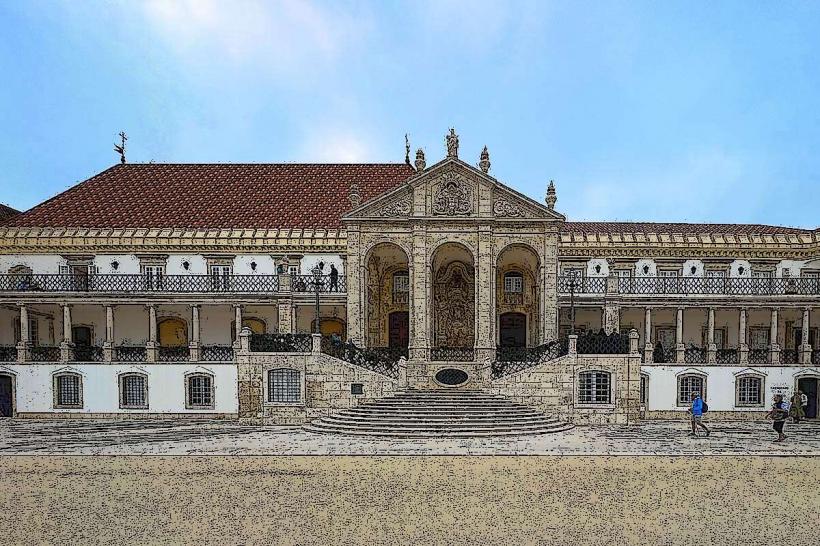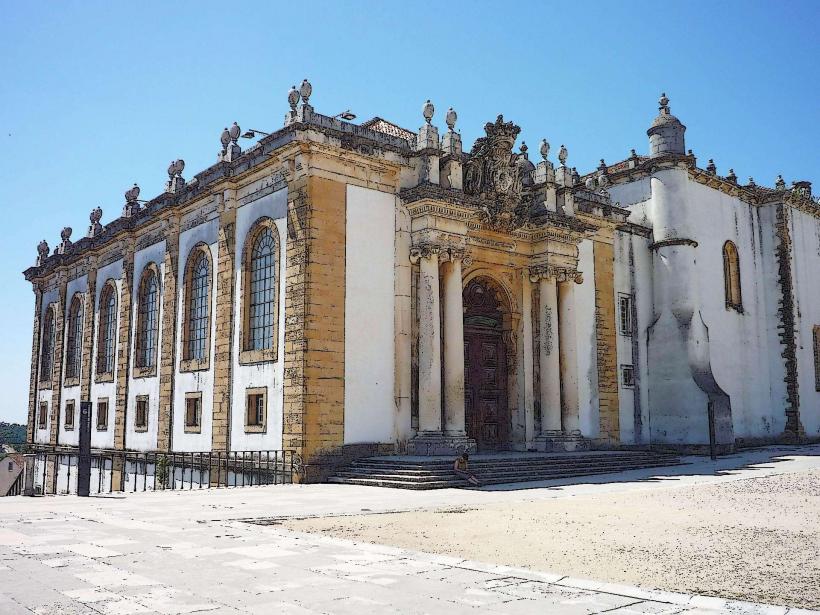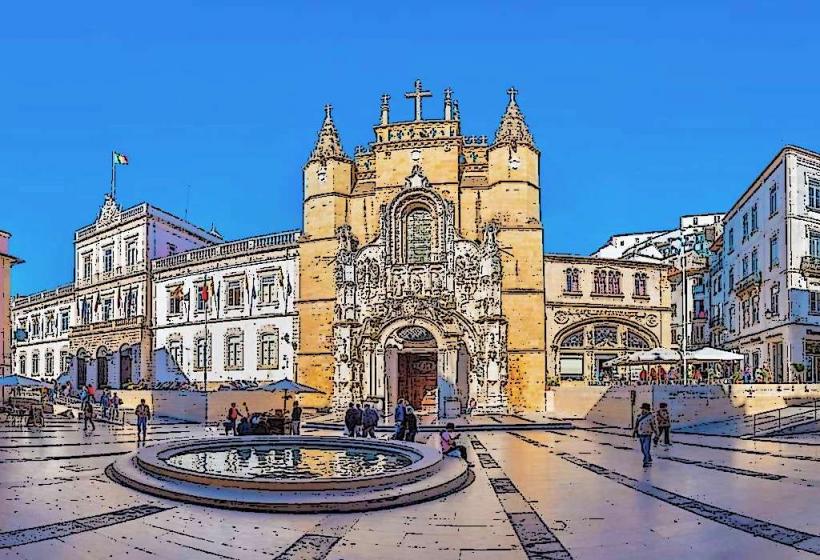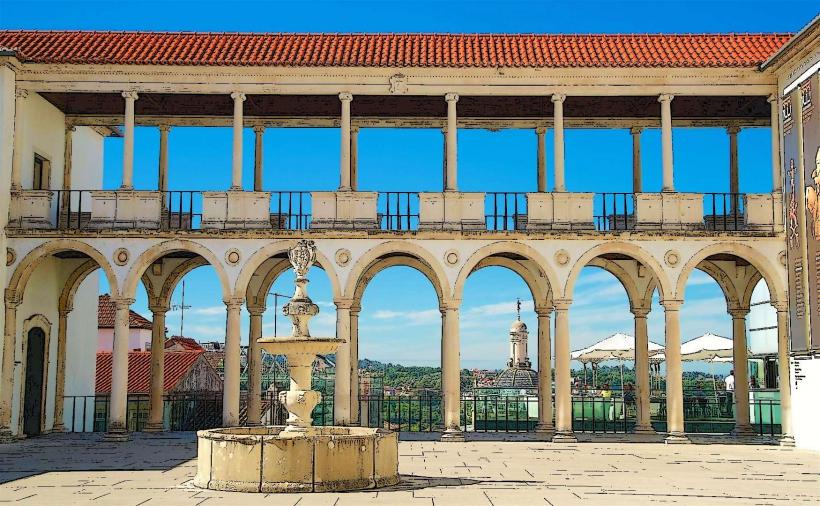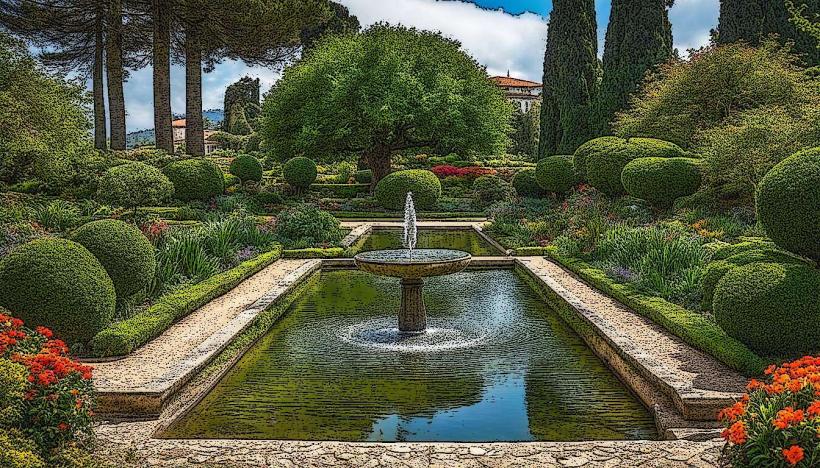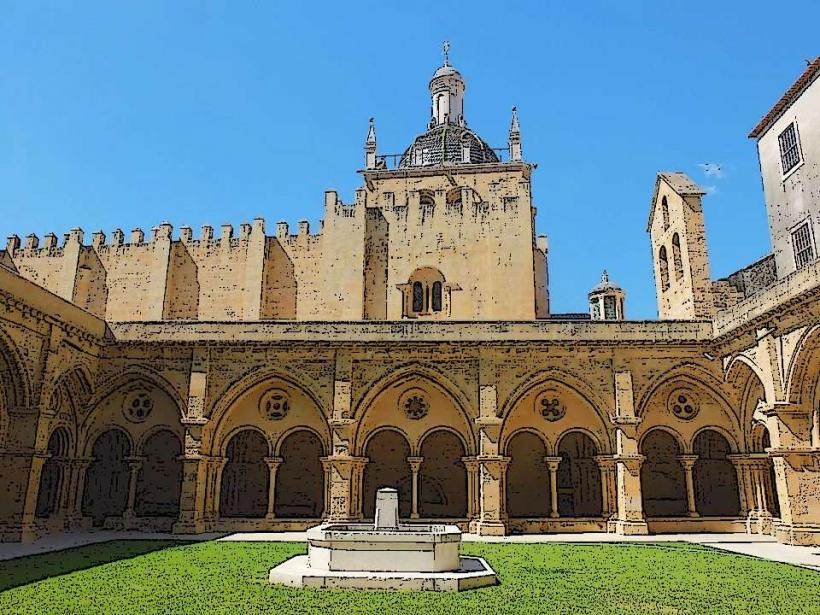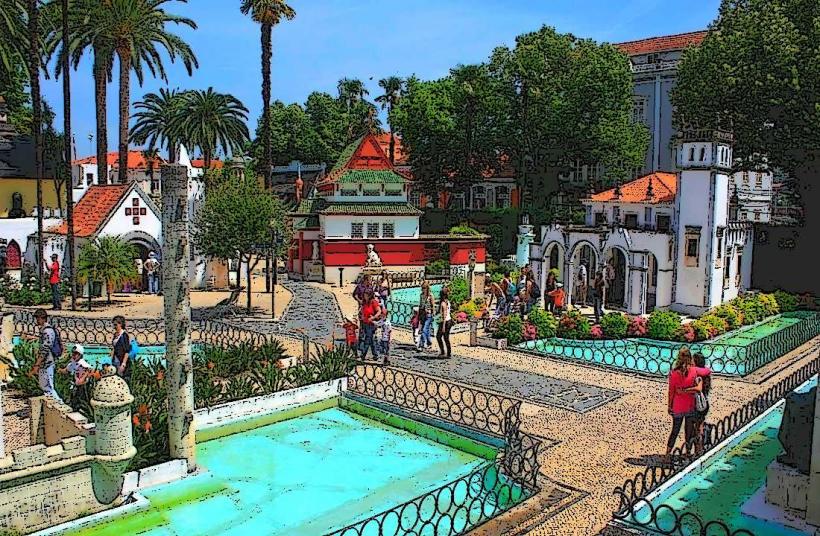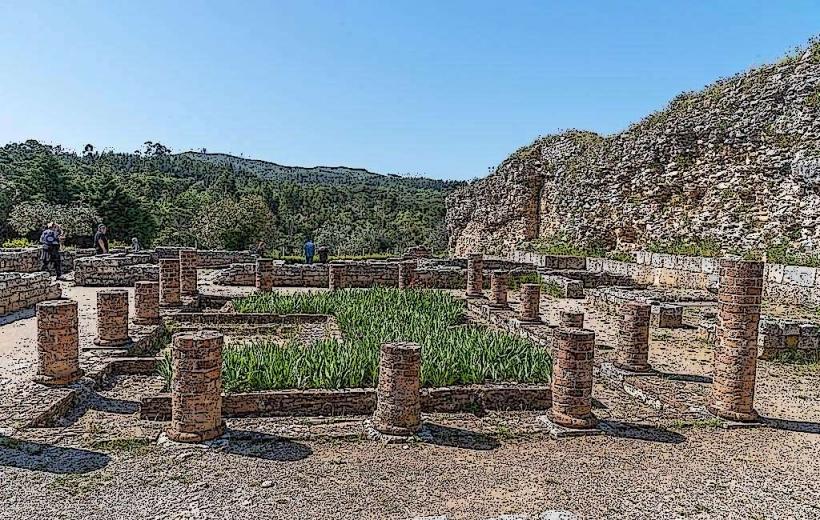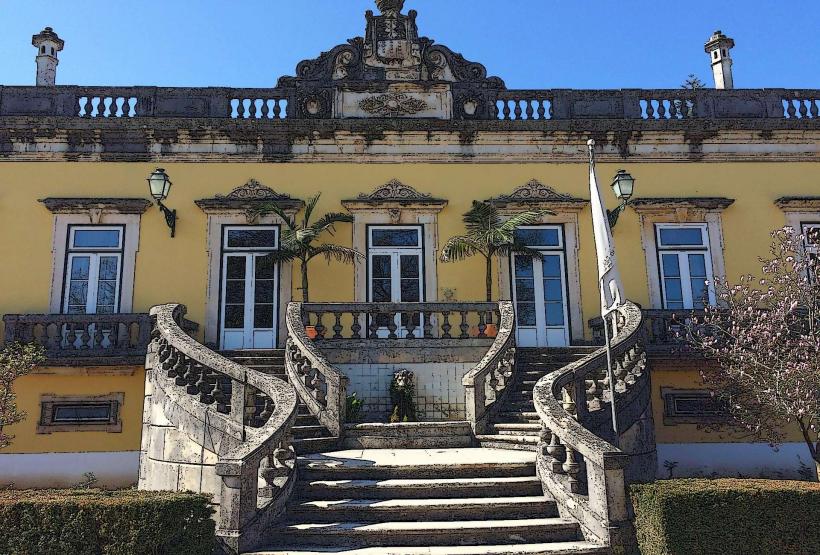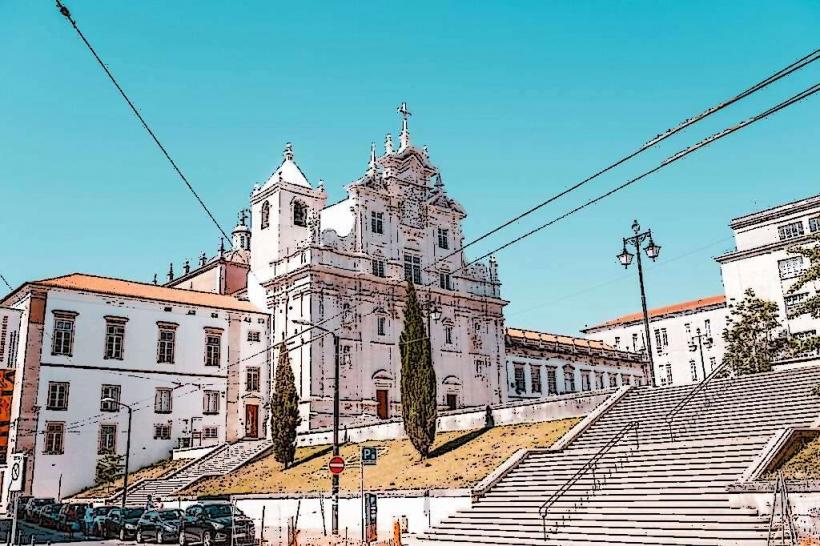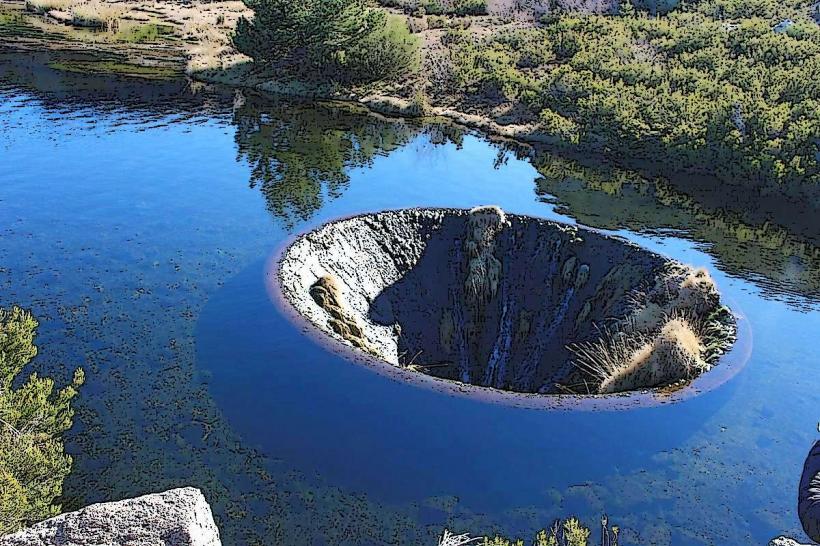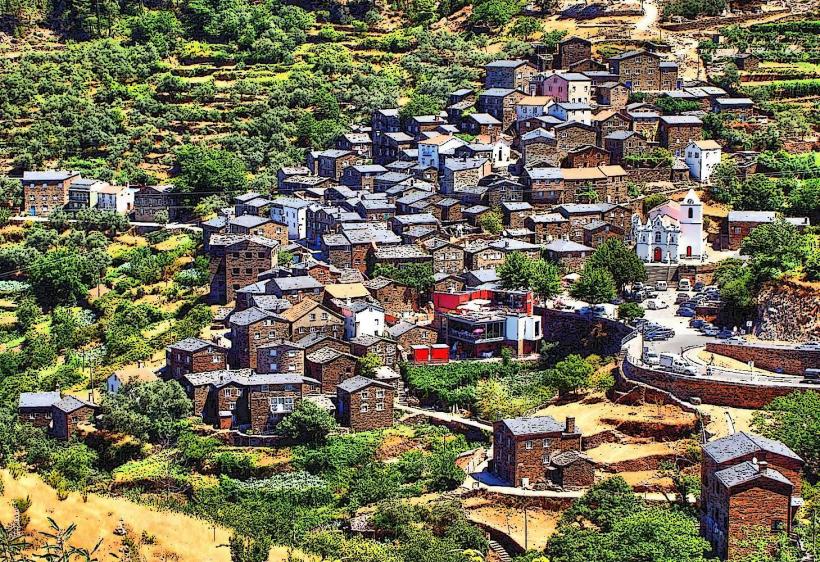Information
City: CoimbraCountry: Portugal
Continent: Europe
Coimbra is a historic city in central Portugal, known for its university, which is one of the oldest in Europe, and its rich cultural and intellectual heritage. Located along the Mondego River, Coimbra has played a central role in the development of Portuguese identity, politics, and education. Here's a detailed look at the city of Coimbra:
1. Historical Significance
- Roman and Moorish Influence: Coimbra has a deep history that dates back to Roman times when it was known as Aeminium. The city's strategic location along the Mondego River made it an important settlement for the Romans. During the Moorish period, Coimbra became a key city in the Islamic Kingdom of Al-Andalus. It was during this time that many of the city's streets and architectural features gained their distinctive layout.
- Medieval Capital: Coimbra served as the capital of Portugal during the 12th century, under the reign of King Afonso Henriques, the first King of Portugal. The city was the political and military center of the newly established kingdom before the capital was moved to Lisbon.
2. University of Coimbra
- Foundation and Importance: Established in 1290, the University of Coimbra is one of the oldest universities in Europe and remains a central element of the city's identity. It played a key role in shaping the intellectual and cultural life of Portugal and continues to be a major educational institution. The university’s historical significance has made it a UNESCO World Heritage Site.
- Academic and Cultural Influence: The university is not just an academic institution but also a cultural hub. It is home to a variety of museums, libraries, and historical buildings. The university's students have historically contributed to Portugal’s arts, literature, and politics, and its cultural festivals, such as the Queima das Fitas, are celebrated with great enthusiasm.
3. Cultural Significance
- Fado de Coimbra: Coimbra has its own distinct style of Fado, a traditional form of Portuguese music that is deeply emotional and melancholic. Coimbra’s Fado is traditionally sung by university students, and it is characterized by its poetic lyrics and the use of the Portuguese guitar. Fado de Coimbra is an important cultural tradition that reflects the city’s intellectual and romantic atmosphere.
- Literary Heritage: Coimbra has been the birthplace and inspiration for many important Portuguese writers, including José Saramago, who won the Nobel Prize in Literature. The city’s historical and academic atmosphere has fostered generations of intellectuals and poets.
4. Architecture and Urban Layout
- Medieval Streets and Buildings: The city is known for its well-preserved medieval architecture, including narrow streets, cobblestone alleyways, and charming squares. The Old Cathedral (Sé Velha), a Romanesque church, and the Almedina Arch, a remnant of the Moorish city gates, are key symbols of the city’s historical character.
- University Buildings: The University of Coimbra is a major part of the city’s architectural landscape, with iconic structures such as the Joanina Library, a baroque masterpiece, and the Royal Palace. The university’s buildings are spread throughout the city, offering a blend of historical and modern architecture.
- Botanical Garden: The University of Coimbra Botanical Garden, established in the 18th century, is one of the oldest botanical gardens in Europe. It serves as a peaceful green space for students and visitors to relax while also showcasing a rich diversity of plant species.
5. Cuisine and Gastronomy
- Traditional Dishes: Coimbra’s cuisine is heavily influenced by the surrounding Beira Litoral region, known for its rich, rustic dishes. Typical meals include chanfana (a goat stew), leitão assado (roast suckling pig), and arroz de cabidela (chicken rice cooked with its own blood).
- Sweets: The city is known for its pastéis de Santa Clara, a traditional Portuguese pastry made of egg yolks and sugar. Another local delicacy is pão de ló, a light, fluffy sponge cake that is often served with a drizzle of syrup.
- Wine: Coimbra is located near several notable wine regions, including the Dão and Bairrada wine areas, so the city’s dining culture often incorporates these local wines.
6. Climate
- Mediterranean Climate: Coimbra enjoys a Mediterranean climate, with warm, dry summers and mild, wet winters. Summer temperatures often range from 25°C to 30°C (77°F to 86°F), while winter temperatures typically vary between 5°C and 15°C (41°F to 59°F). The city’s relatively moderate climate makes it a pleasant year-round destination for both visitors and residents.
7. Transportation
- Road and Rail Connections: Coimbra is well-connected by road and rail, making it easily accessible from Lisbon, Porto, and other major cities. The city’s central location in Portugal makes it an ideal base for exploring the country’s interior.
- Public Transport: Coimbra has a network of public buses and taxis. The city's compact size means that many of its attractions can be explored on foot, though there are also buses for traveling to the surrounding areas.
8. Tourism and Attractions
- Historical Sites: Visitors to Coimbra are drawn to its rich historical heritage, including the University of Coimbra, the Old Cathedral, the Joanina Library, and the Monastery of Santa Clara-a-Velha. The city’s medieval center, with its narrow alleys and charming squares, offers a journey back in time.
- Natural Beauty: Coimbra is located near several natural attractions, including the Serra da Lousã mountains, which offer opportunities for hiking, wildlife watching, and exploring picturesque villages. The Mondego River also provides scenic views, especially along the city’s riverfront areas.
9. Local Identity
- Student Culture: Coimbra’s identity is closely tied to its university, and the city’s university students are an integral part of its atmosphere. Student traditions, including the famous Queima das Fitas festival (a celebration marking the end of the academic year), are key to the local culture and contribute to the youthful energy of the city.
- Pride in Heritage: The people of Coimbra are deeply proud of their city’s intellectual and cultural heritage. This pride is reflected in the city’s preservation of its traditions, such as Fado de Coimbra, and in its emphasis on academic achievement and cultural expression.
10. Nearby Attractions
- Conímbriga: A short distance from Coimbra, Conímbriga is one of the most important Roman archaeological sites in Portugal. The site includes well-preserved ruins, including houses, baths, and mosaics that offer insight into the Roman way of life.
- Lousã and Bussaco: The nearby towns of Lousã and Bussaco are known for their natural beauty, with lush forests, charming villages, and historic palaces. Bussaco, in particular, is home to the Palace Hotel Bussaco, a stunning early 20th-century building set in a vast forest.
Summary
Coimbra is a city where history, academia, and culture converge. As the home of one of Europe’s oldest universities, it has played a pivotal role in shaping Portuguese intellectual life. With its medieval streets, baroque architecture, and vibrant student culture, Coimbra is a city that embraces its heritage while offering a modern and dynamic atmosphere. Whether exploring its historic sites, enjoying its lively student life, or savoring its unique cuisine, Coimbra is a city that invites visitors to engage deeply with both its past and its present.

